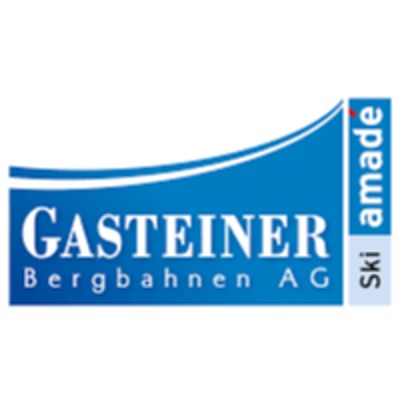Two Events, Three Gold Medals - Parallel Slalom World Champs

Three new World Champions were crowned today in Cortina as Matthieu Faivre (FRA) and Marta Bassino (ITA) and Katharina Liensberger (AUT) all earned gold medals in today’s parallel World Championship debut.
Liensberger and Bassino ended in a rare tie for the gold medal, giving Cortina a bonus gold medalist.
Bassino entered the afternoon race with the pressure of being the big favorite after Petra Vlhova failed to make it out of the qualification round. Adding to the weight on her shoulders was the fact that the Italian team was without a medal at these home World Championships.
A quarterfinal match-up against teammate Federica Brignone guaranteed an Italian would be within striking distance for a medal and after winning that round, Bassino used the momentum and powered through the half final, defeating Tessa Worley. That set up the final match-up against Austrian Katharina Liensberger, which ultimately ended in the draw.
“I am happy today to get the medal for Italy and the organizers,” said Bassino. “It was not an easy day for sure, but to get Italy’s first medal makes me proud.”
Rounding out the women’s podium was Tessa Worley who defeated American Paula Moltzan. “It definitely was a really long day, but it was filled with lots of good turns and lots of good times and I’m happy with how I performed,” reflected Moltzan. “Obviously you’re always hoping for a medal, but this is my best result ever at World Champs.”
Moltzan made two significant comebacks in the round of eight and quarter-finals to eventually meet France’s Tessa Worley in the small final, eliminating Austria’s Stephanie Brunner and favorite Wendy Holdener of Switzerland along the way.
In her competition for the bronze, Moltzan capitalized on the red, fast track on skiers left in her first run, creating a half a second deficit between her and Worley. However, a small mistake in her second run combined with the disadvantage of the slower, blue course put what would be her first World Championship medal just out of reach. At the end of the day, Worley would take the bronze, behind Austria’s Katharina Liensberger and Italy’s Marta Bassino—tied for first.
“Today definitely is a great starting spot for the rest of World Champs I’m just going to hope to build and make good turns for myself and have the whole team build with me,” said Moltzan.
Earlier in the finals, Nina O’Brien had a tough match-up against Holdener, who eliminated the 23-year-old American in the round of eight. Despite not advancing to the quarter-final round, O’Brien still enjoyed the day. Her 10th place finish in Tuesday’s parallel event is, thus far, the best World Championship result for O’Brien in her career.
“I would have loved to keep skiing,” explained O’Brien. “[Parallel is] really fun and I love this event, it’s exciting and you never really know what’s gonna happen when you’re going head to head. So I’m bummed, but I think I skied pretty well, it was a tough match-up against Wendy [Holdener].
On the men’s side Mathieu Faivre earned his first individual World Championship gold medal in a hard-fought men’s race that was also full of surprises. Faivre has one previous gold medal in the parallel team event, but none in an individual race.
Faivre faced off against Filip Zubcic in the finals and already in the first run held a large advantage. Zubcic bobbled on the last run of the day, allowing Faivre to cruise to the victory by 0.48 seconds.
Early favorite Loic Meillard, had to settle for the bronze medal after getting knocked out of the gold medal hunt by Zubcic. Still for the Swiss it was a positive day as he picked up his second medal of these World Championships, with his second bronze.
“I am really happy to win my first individual medal, but there is much that needs to be discussed after today,” said Faivre.
The discussion that Faivre was referring to was a discrepancy between the red and the blue courses which created for many uneven finishes in the second match-up between the athletes. Even the run/re-run format couldn’t make-up for the difference, which had many athletes seeing red at the end of the race.
In season’s past, much debate has taken place over the fairness of the parallel event, given the impossible feat of setting two perfectly identical courses. To eliminate as many disadvantages as possible, the format has been updated to take on the nature of parallel giant slalom, which requires athletes to complete each turn around the gate rather than busting through them as is standard in parallel slalom. To accommodate for different course sets, each athlete takes a run on both the red and the blue course, battling it out against their opponent to overcome any time deficits created from their first run in their second run.
The sheer amount of head-to-head runs is what makes parallel an absolute battle for all athletes involved, both mentally and physically. By the end of the event, the top two competitors will have completed eight runs in the finals alone before gold is decided.
River Radamus found a way to overcome these challenges more than once, capitalizing on the speed of the red course to overtake his half-second deficit behind Slovenia’s Zan Kranjec in the round of eight. In the quarter-finals, Radamus lost out in a match-up with Croatia’s Filip Zubcic, who would go on to earn a silver medal after losing the big final to France’s Mathieu Faivre. Switzerland’s Loic Meillard finished with the bronze.
“We can tell that the red course is faster, but you gotta ski both courses, and you’ve gotta take the positives of each course,” commented teammate Radamus, who had the best finish of the day on the men’s side in eighth overall. “The goal is to try and build up the deficit as much as you can on the red course and survive it in the blue course and I just couldn’t do it that time.”
“[The courses] affect everybody’s performance, it’s just the reality though, you can’t set a perfect dual,” Radamus added. “You have to beat the person on the combined two courses; whoever does that wins.”
AJ Hurt, Kaite Hensien, and Luke Winters also pushed out of the start gate for the United States on Tuesday morning in the qualifier but did not qualify for the final race.
Up next on the docket for the tech athletes competing in the 2021 FIS Alpine World Championships is the team event to take place on Wednesday, Feb. 17, where Tuesday’s competitor













